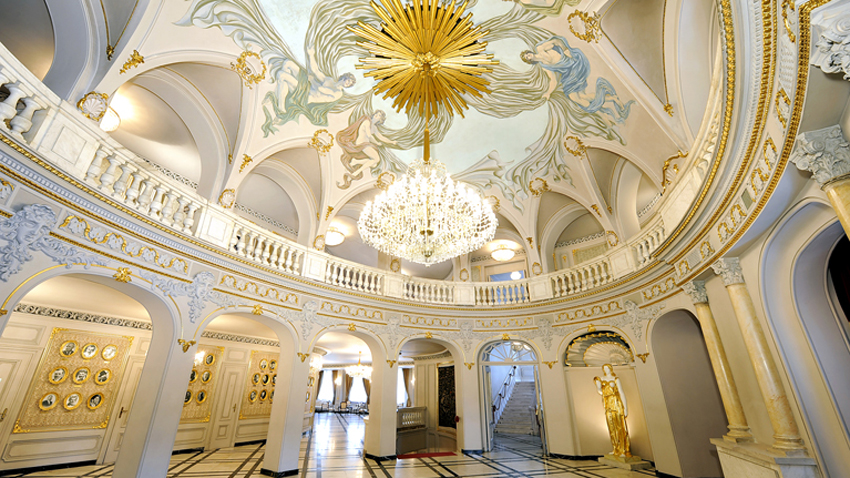
A total of 12 buildings from across the country participate in the "Emblematic Buildings of Bulgaria” competition. The idea is to promote Bulgarian cultural heritage through some of the most beautiful restored buildings from the past. Monuments of culture in famous tourist centers like Gabrovo, Veliko Tarnovo, Belchin village, Plovdiv, Sofia and others take part in the competition. Buildings included in the selection can be seen at emblematichnitesgradi.com, where everyone can cast their vote for their favorite building. "Each of these buildings has a lot to show and tell. So we want to reveal not only their beauty, but also their historical value,” says Sevdalina Vasileva – one of the managers of Alphabank Bulgaria and coordinator of the project. According to her, the interest towards the initiative is enormous.

The contest includes architectural masterpieces such as the building of one of the first Bulgarian secular schools in the town of Tryavna, the Hadji Nikoli Inn in Veliko Tarnovo, built by Kolyo Ficheto in 1858, the ancient fortress Tsari Mali Grad near Belchin, the small basilica in Plovdiv dating back to the 5th century and restored thanks to a European project and more. Voting ends on December 10, when the most emblematic Bulgarian building will be announced at a ceremony.
"The site of the initiative is very innovative. One can vote without any registrations or complex procedures," says Ms. Vassileva and adds:

"The site shows each building. In addition to the available 3-D format, they can be viewed inside thanks to a 360-degree platform. We present interesting facts about each of building. The contest is fierce and 22.000 votes have already been cast. Until last week the National Aprilov High School in Gabrovo /founded in 1835/ was among the top three, but these days it gave way to the Dohodno Zdanie theater complex /built between 1898-1902 by the Viennese architect Peter Paul Brang/ in Russe. Among the leaders are also the Hadji Nikoli Inn in Tarnovo, the National Theatre in Sofia and other architectural masterpieces. There is also a mobile application available in addition to the site.”

All 12 buildings included in the competition can be viewed in detail on your mobile phone or tablet using a specially created application called Augmented Reality. Organizers of the contest hope to turn the Emblematic Buildings of Bulgaria into an annual event.
English: Alexander Markov
The Gala Concert of the National Ballet of El Salvador will take place today at 16.00 in the State Opera House in Stara Zagora as part of the programme of the 54th International Festival of Opera and Ballet Arts . The founder and director of..
The ninth edition of the initiative Poetry in the Metro opens today and lasts until 23 December. The project was initiated by the Polish Cultural Institute in Sofia. It includes poems by 20 European writers. They will be displayed on panels..
Awakener/enlightener - a person who, through his actions, ideas or creative work, awakens the spirit of the people, preserves and spreads national identity, culture and education. In Bulgarian history, this term is most often associated with the period of..
“A story that is worthy of a movie” is what we often say when we hear about some incredible event or an interesting story. It is cinema..
The fourth national Biennial of Illustrations opens today in the triangular tower of Serdica, part of the Regional Museum of History in Sofia. As..

+359 2 9336 661
